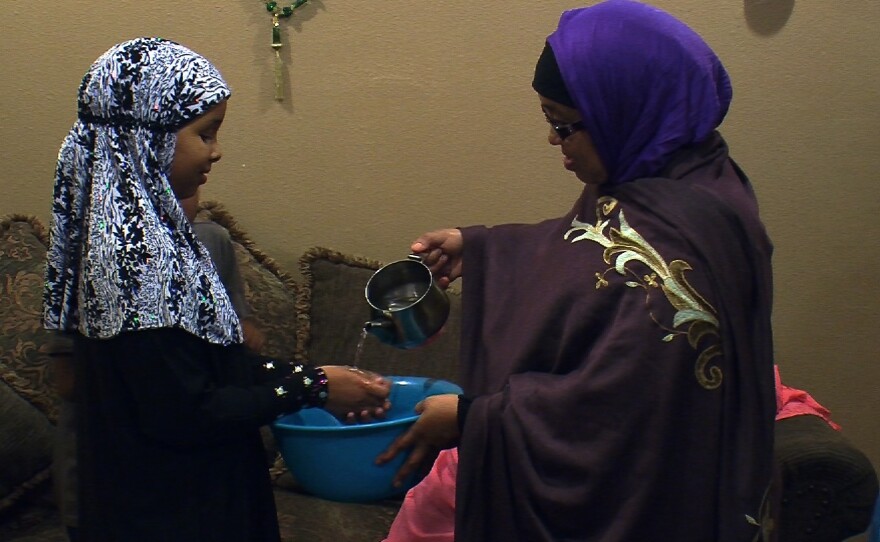Mana Ahmed Mohamed arrived in San Diego from Somalia with her husband and oldest son in 1997. They have since had a boy and two girls here.
One of the things she found most challenging, she said, was finding the kinds of foods that were acceptable by her faith, Islam.
Help Us Cover The Story
“When I came here it was difficult, really. Because it’s different from how we eat in our country,” she said.
For example, Islam requires that animals be slaughtered in a certain way – called “halal.”
“For years I had a hard time finding the right things to cook for my children. Then I learned how to choose halal food. Because here a lot of food has pork, or alcohol, which we cannot eat.”
Eventually, Mana said, she found shops catering to Somalis. She discovered the farmers' market and the collard greens she loves; she found the halal butcher shops.
But as her four kids grew up, Mana noticed they loved the same junk food as American kids.
“They eat fruit, bananas and apples too,” she said. “But they don’t like spinach. It’s hard even for American children, I know.”
The girls still love to eat homemade sambusa, a Somali pastry filled with ground beef typically eaten around the Ramadan holiday.
Mana’s daughters, Idil and Ilhan, excitedly talked over one another when describing their favorite foods:
“I like to go to Jack in the Box…
“And I like to go to In-n-Out, and I like ice cream and pizza… .”
When asked if they preferred a big Somali feast, they eagerly said yes.
If Mana can’t find the special dough used to make the pastries, she improvises with Mexican tortillas cut in half. Sambusa are typically fried and fatty—not all that healthy either.
But Mana says sambusas are still better for her family than frozen dinners or junk food.
Unlike most Americans, Somali refugees like to cook from scratch, with fresh ingredients, making the same dishes they would eat at home.
And after 14 years of adapting to life in the U.S., Mana also now makes a conscious effort to walk more, eat less, and go to the gym.
Rather than play too much at the computer, Mana’s kids spend more time involved in their Somali community; they’re good students, and good Muslims, she said.
Just before dinnertime, the call for prayer begins. Neighbors and friends join Mana and her kids; the oldest boy in the group, leads the practice.
In a matter of minutes, the prayer mats are taken away and replaced by a tablecloth, laid out on the living-room floor. Their dinner is a mix of traditional dishes, high on carbohydrates and mostly fried, but balanced with fruit, salad, and smoothies.
Mana says her family doesn’t often get a chance to eat like this, together. And as hard as they try, the American lifestyle creeps in.
For the first generation, the struggle is in staying thin and fending off diabetes; for the kids, it’s staying away from the appeal of fast-food joints.
“Somehow, I don’t know, we can’t stop,” Mana said. “And many people came skinny and now are becoming fat.”






